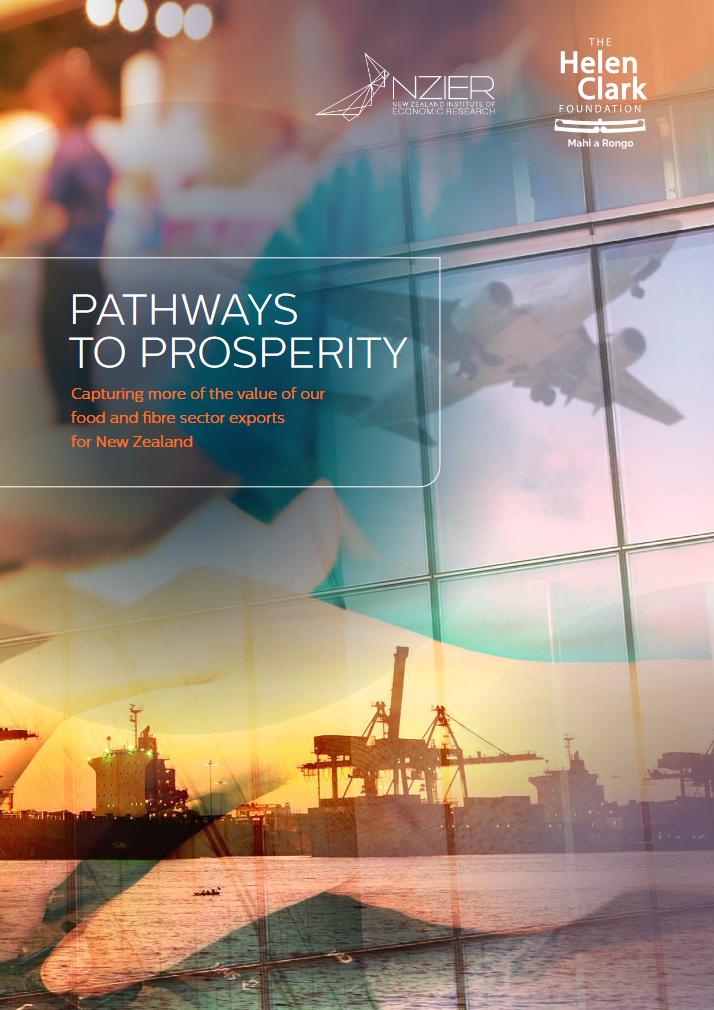Pathways to prosperity: Capturing more of the value of our food and fibre sector exports for New Zealand is a discussion paper released in partnership with NZIER. You can read and download a high resolution version of the paper here. You can watch the launch webinar for the paper here.
New Zealand’s past productivity performance has been relatively poor compared to Australia, the United States, and other small economies. The relative slide in productivity in the 1970s through 1990s has largely been halted. The problem now is how to catch up. This discussion paper tackles the issue of how to manage our economic resources differently to produce a different result. By considering how the New Zealand food and fibre sector could deliver more value to New Zealand, this paper sets out how we can ensure our standard of living remains high in the decades to come.
The report is based on interviews with sector leaders and draws on extensive research on the sector’s strengths and longstanding challenges. It sets out five critical areas where long-term decision making will make a major difference to the sector’s productivity, and by extension, to New Zealand’s prosperity:
- developing a more skilled workforce;
- consumer-driven marketing and product development;
- better investment, especially in processing;
- improving management and governance; and
- strategic collaboration to create scale and larger investment pools.
However to improve productivity and earn more value from export markets, the sector will have to overcome a number of challenges. These include lower levels of investment and technology in food and fibre processing compared to similar economies. Another challenge is that many firms in the sector are inherently risk-averse, reflecting a combination of organisational structure (such as co-ops) and the mindsets of senior managers and directors. This paper shows that the New Zealand food and fibre sector could overcome these disadvantages with time and patient money – that is, investment and policies that do not demand immediate results.
This paper is part of the Helen Clark Foundation‘s broader research into policy that helps New Zealand grow a fairer and more prosperous economy. You can read our other publications on this topic here.
Read more